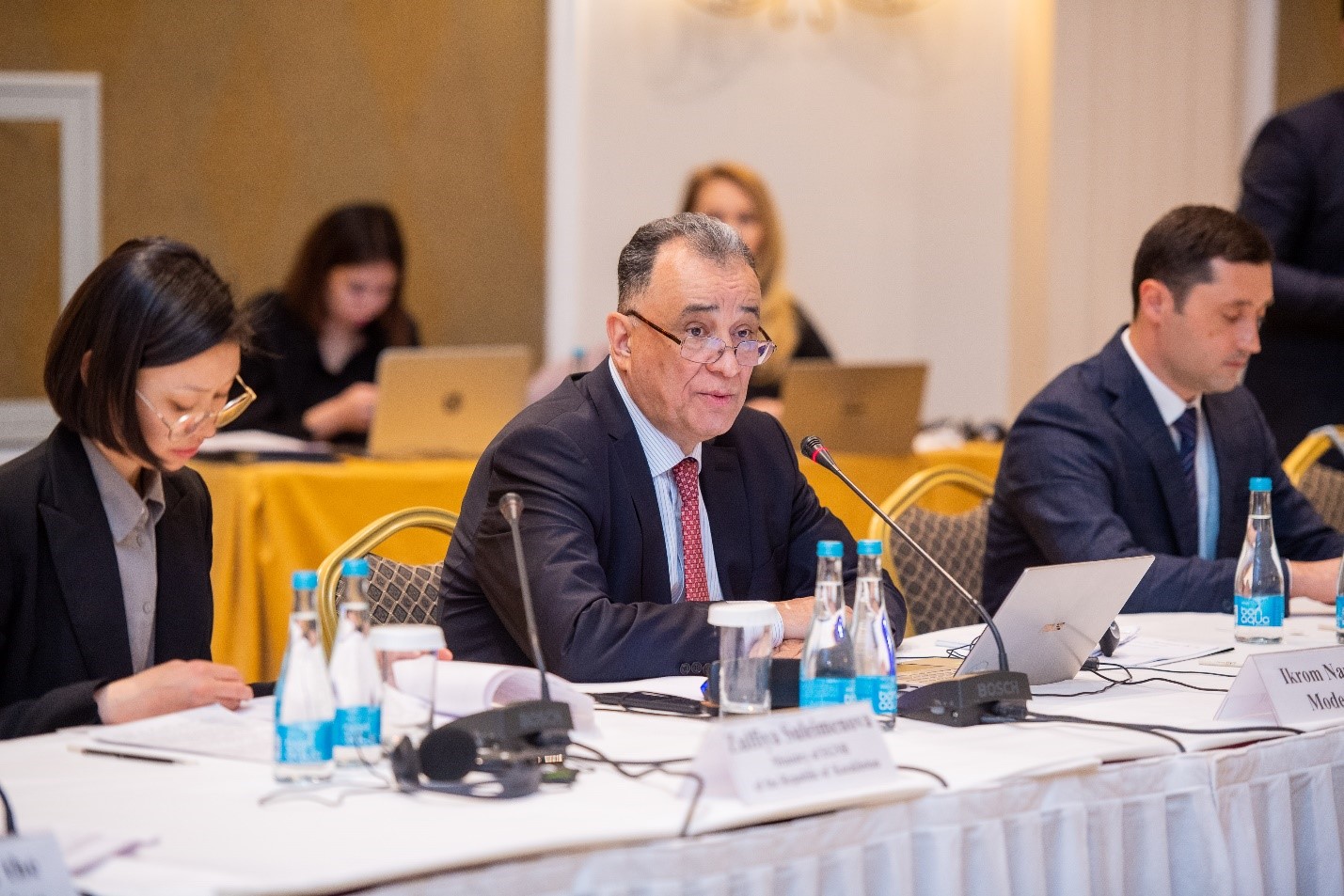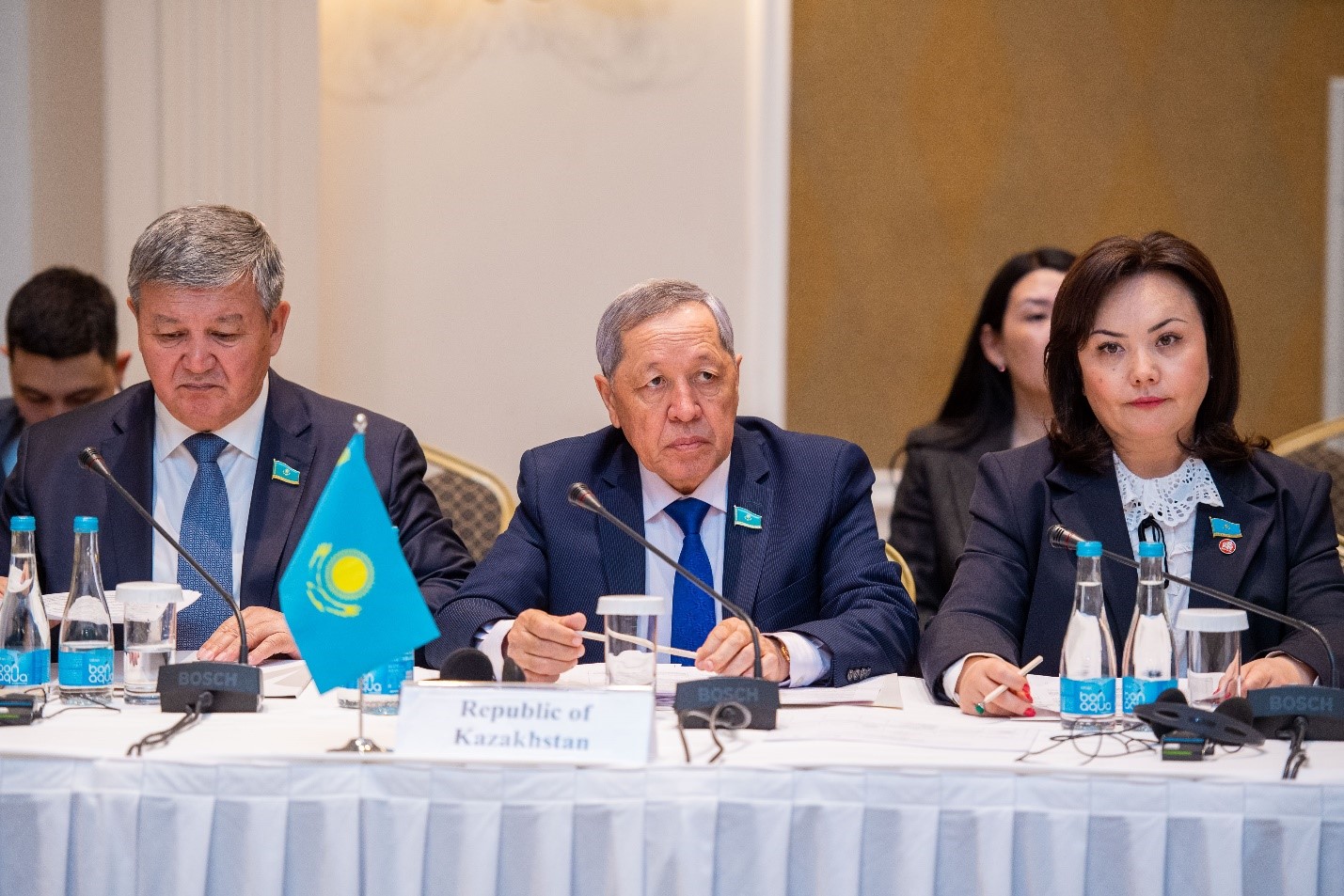“The experts of the Asian Development Bank assessed the average damage by climate change will approach 507 million annually by 2050 in the countries of Central Asia,” said in the speech on behalf of the Chairman of the Executive Committee of the International Fund for saving the Aral Sea (EC IFAS) Sulton Rakhimzoda at the Sixth Meeting of the Representatives of the Ministries of Foreign Affairs and the Parliamentarians in Nur-Sultan, Kazakhstan.
The Sixth Meeting of the Representatives of the Ministries of Foreign Affairs and the Parliamentarians took place in Nur-Sultan, Kazakhstan, on April 18-19. It brought together representatives of the Ministries of Foreign Affairs (MFA), the Parliaments and the environmental authorities of the Central Asian States – Kazakhstan, Kyrgyzstan, Tajikistan, Turkmenistan and Uzbekistan.
The main objective of the meeting is to exchange the experience of the adoption of the Kazakhstan Environmental Code between the countries of Central Asia. This initiative was supported unanimously by the participants of the 4th and 5th meetings of the MFA and the Parliamentarians in Dushanbe on July 27, 2021 and in Glasgow on November 4, 2021, respectively.
The participants of the meeting focused on the joint work ahead at the UNFCCC COP27, namely on the organization of the next Pavilion of the countries of Central Asia. Everyone agreed on the excellent organization of the Central Asia Pavilion at COP26, the first in the history of the UNFCCC Conferences of Parties. They highlighted the importance and necessity of regional coordination in the fight against climate change.
“The CAREC will work on finding common grounds, formulating a common position and preparing the region for the upcoming COP27 through the numerous working meetings with the national and international partners. This session in Nur-Sultan will let us start joining efforts of the national delegations and prepare the region for COP27,” said Zafar Makhmudov, the Executive Director of the Regional Environmental Center for Central Asia (CAREC).
The participants of the meeting discussed the progress in the improvement of legislation and the climate policy implementation in the countries of Central Asia, as well as the results and achievements in the implementation of climate commitments.
Vice Minister of Ecology, Geology and Natural Resources of the Republic of Kazakhstan Zulfiya Suleimenova reported on the successful experience of Kazakhstan in updating and developing the Ecocode, the new version of which was adopted in 2021.
The Senior Environmental Specialist of the World Bank John Bryant Collier noted that natural resource management and all areas affected by climate change continue to be top priorities.
It should be noted that the meetings at the level of the MFAs and the Parliaments of the countries of Central Asia are unique and the only platform in the region. This dialogue was initiated by the CAREC with the support of the European Union in 2016 in order to discuss relevant issues related to environmental management in the region, and share knowledge, experience and best practices. In turn, the national and international development partners have expressed interest in regular dialogues to raise awareness and strengthen regional cooperation. The issues of climate change and the strengthening of intersectoral cooperation on the agenda of this dialogue platform were announced for the first time in 2019.
As part of the Climate Change Adaptation and Mitigation in the Aral Sea Basin Program (CAMP4ASB), CAREC supported the proposal of the MFAs’ representatives and the parliamentarians of Central Asian States to hold such events twice a year. Protocols of the fifth meetings of the MFAs’ representatives and the parliamentarians of Central Asia are available at the links: the first meeting, the second meeting, the third meeting, the fourth meeting, and the fifth meeting.
At the Sixth Meeting, participants expressed gratitude to the World Bank and the CAREC and emphasized the importance of such meetings in the future.


